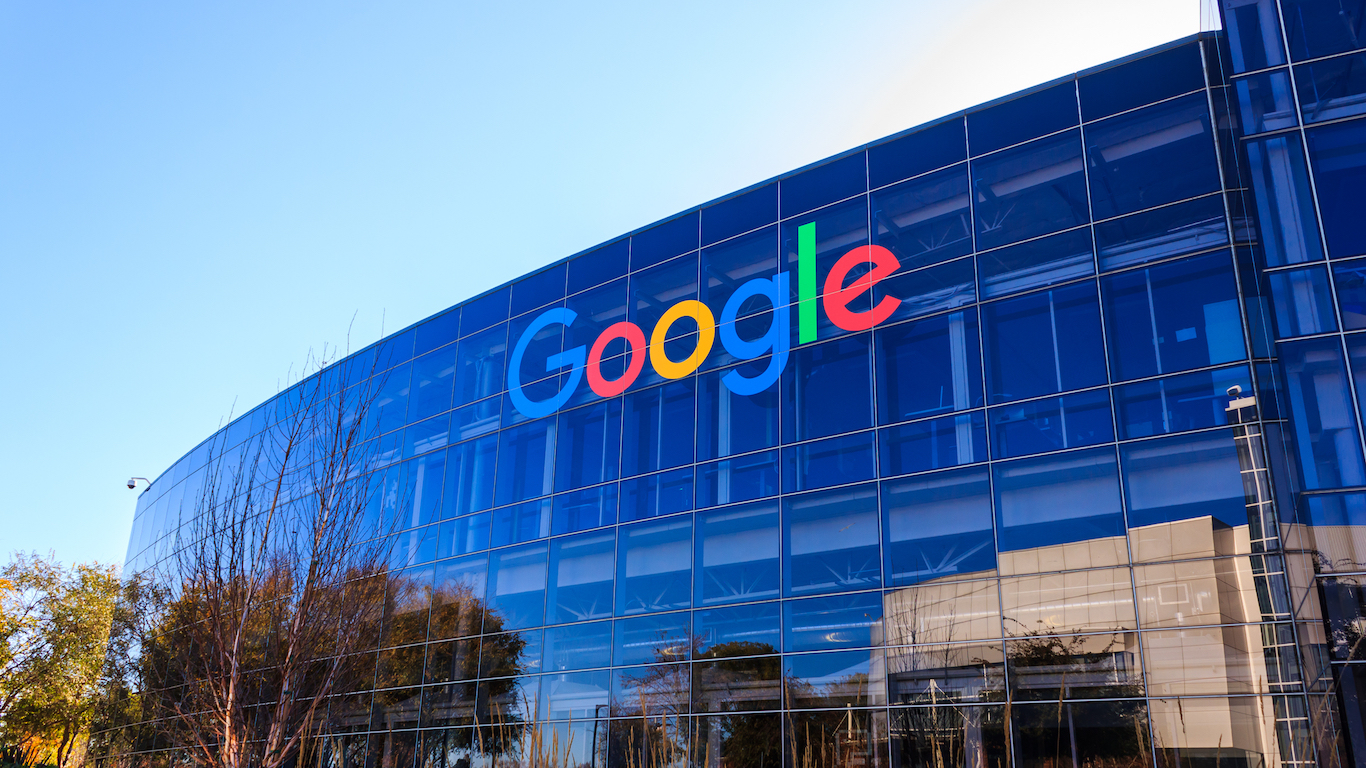
In a terse filing with the U.S. Securities and Exchange Commission Wednesday morning, Alphabet Inc. (NASDAQ: GOOGL) announced that the company would take a €1.49 billion ($1.7 billion) charge in the first quarter of 2019 to pay a European Commission (EC) fine levied for infringement of “European competition law.” That brings the total amount of EC fines against the search engine giant to $9.32 billion.
In June of 2017, Google was fined $2.7 billion for illegal comparison shopping services and $5.0 billion in July 2018 for illegal practices related to its Android mobile operating system, mobile apps and services.
According to a statement on the latest fine from European Commissioner for Competition Margrethe Vestager, Google dominates the European Union’s online advertising brokerage market with a share exceeding 70% and has done so since 2006. The decision announced today is “about how Google abused its dominance to stop websites [from] using brokers other than its AdSense platform.”
Google removed the restrictions it had imposed on advertisers in 2016 following a statement of objections from the EC. Since June 2018, the percentage of comparison shopping ads from Google competitors appearing on the first search results page has increased from 30% to 75%. Other data reported last June indicated that the percentage of clicks that went to competitors grew from 6% to 40%.
Regarding the Android decision, Google may no longer force smartphone and tablet makers to use the company’s browser and search products if they also want access to the Google Play Store. Google has agreed to provide users with a choice of browser and search products.
While the fine in today’s announcement is substantial, it won’t have much impact on Alphabet’s profitability. The company’s net income from continuing operations last year totaled more than $30 billion, and Alphabet reported nearly $110 billion in cash and cash equivalents at the end of the December 2018 quarter.
What may be next could be a bigger problem. Ever wonder why the same ads follow you around when you’re surfing the web? That is largely due to Google’s willingness to share its AdSense services with its own advertisers. For a fee, of course.
Is there any competition for that in the EU, or anywhere else for that matter? Not really. According to Datanyze, AdSense’s network includes nearly 3.5 million websites and Google Ads is the next largest ad serving network with about 960,000 websites. Number three is Bing Ads, with just over 123,000 sites in its network.
That’s a target that’s too big to ignore, and the EC’s Vestager is not one to shy away from a fight. Stay tuned.
Thank you for reading! Have some feedback for us?
Contact the 24/7 Wall St. editorial team.



